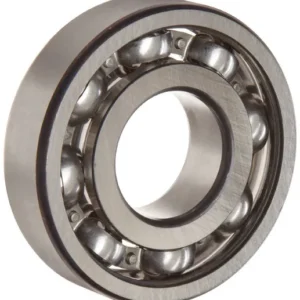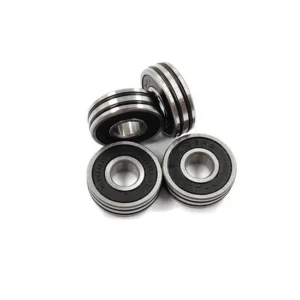This article provides an in-depth analysis of Industrial Heavy-Duty Bearings: OEM Solutions for Reliability & Performance. It explores the significance of these bearings in various industrial applications, highlighting their role in ensuring reliability and optimal performance. The article delves into the design, materials, manufacturing processes, and applications of these heavy-duty bearings, offering insights into how they contribute to the efficiency and longevity of machinery.
Industrial heavy-duty bearings are designed to withstand extreme conditions and heavy loads, making them essential components in machinery across various industries. These bearings are engineered to provide reliable and high-performance solutions for OEMs (Original Equipment Manufacturers) looking to enhance the durability and efficiency of their products. In this article, we will explore the key aspects of industrial heavy-duty bearings, including their design, materials, manufacturing processes, and applications.
The design of industrial heavy-duty bearings is a critical factor in determining their performance and reliability. These bearings are typically designed with high precision and durability in mind. The following points highlight the key aspects of the design and engineering process:
- **Precision Engineering**: Industrial heavy-duty bearings are manufactured with tight tolerances to ensure smooth operation and reduced friction.
- **Load Distribution**: The design incorporates features that enable even load distribution, preventing premature wear and extending the bearing's lifespan.
- **Material Selection**: The choice of materials is crucial for withstanding the harsh conditions of industrial environments.
The materials used in the construction of industrial heavy-duty bearings play a vital role in their performance and longevity. The following materials are commonly used:
- **Steels**: High-carbon and alloy steels are used for their strength and durability.
- **Ceramics**: Certain applications may benefit from the use of ceramics, which offer excellent wear resistance and high-temperature stability.
- **Polymers**: In some cases, polymers are used for their low-friction properties and resistance to corrosion.
The manufacturing process of industrial heavy-duty bearings is a complex and precise operation. The following steps are typically involved:
- **Forging**: The initial stage involves forging the steel to shape, which helps in achieving the required strength and hardness.
- **Heat Treatment**: Heat treatment processes, such as quenching and tempering, are used to enhance the mechanical properties of the steel.
- ** Machining**: The final stages involve precision machining to achieve the required dimensions and surface finish.
Industrial heavy-duty bearings are used in a wide range of applications across various industries. The following examples illustrate their versatility:
- **Mining**: These bearings are used in mining equipment to withstand the extreme conditions of the underground environment.
- **Construction**: Heavy-duty bearings are essential components in construction machinery, such as cranes and excavators.
- **Automotive**: The automotive industry relies on these bearings for their durability and performance in vehicles.
The performance and reliability of industrial heavy-duty bearings are crucial for the smooth operation of machinery. The following factors contribute to their performance:
- **Reduced Friction**: The design and materials used in these bearings help minimize friction, leading to lower energy consumption and extended lifespan.
- **High Load Capacity**: Industrial heavy-duty bearings are designed to handle high loads, ensuring the machinery operates efficiently.
- **Reduced Maintenance**: The durable construction of these bearings reduces the need for frequent maintenance, saving time and resources.
Industrial heavy-duty bearings are essential components in machinery across various industries, providing reliable and high-performance solutions for OEMs. Their design, materials, and manufacturing processes are tailored to withstand extreme conditions and heavy loads. By ensuring optimal performance and reliability, these bearings contribute to the efficiency and longevity of machinery. As the demand for durable and efficient machinery continues to grow, the importance of industrial heavy-duty bearings will only increase.
Industrial heavy-duty bearings, OEM solutions, reliability, performance, design, materials, manufacturing processes, applications, mining, construction, automotive.

显示 1-4 个结果(共 11858 个结果)



